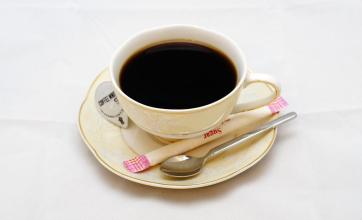Coffee granules full of El Salvador Himalayan coffee flavor taste manor characteristic boutique coffee
The national emblem of El Salvador was launched on September 15, 1912.
National emblem of El Salvador
National emblem of El Salvador
The national emblem is an equilateral triangle whose three yellow lines represent equality, truth and justice respectively. Five volcanoes rise between the Pacific Ocean and the Atlantic Ocean, symbolizing the five countries in Central America. The "pole of freedom" and the red "cap of freedom" stand high on the top of the mountain, emitting the light of freedom and liberation. In the golden light, September 15, 1821 is the day of El Salvador's independence, and the rainbow in the sky overflows with joy and hope. Five Central American federal flags revolve around the national emblem, expressing El Salvador's desire to reorganize the federation. At the bottom is a yellow ribbon with "God, Unity and Freedom" written in Spanish. Green laurel branches surround the periphery of the triangle, making the national emblem round. The outermost golden Spanish reads the country's name "the Republic of El Salvador in Central America." El Salvador implements a representative democratic republic system of separation of powers. The president and vice president are directly elected throughout the country, and they are not allowed to be re-elected. Judicial power is exercised by the Supreme Court, the Procurator-General's Office, etc. [1]
Constitution
The Constitution of El Salvador, which officially entered into force on December 23, 1983, expounds the country's political system, the mode of presidential election, the exercise of legislative and judicial power, etc., and specifically stipulates that presidential candidates can be elected if the first round of votes exceeds 50%, otherwise, a second round of voting will be held between the top two candidates who get the most votes. [1]
Parliament
The National Assembly of El Salvador has a unicameral system, with a total of 84 members, 64 of whom are based on the population of each province.
San Salvador
San Salvador
Proportional distribution, the remaining 20 regardless of provincial origin, according to the number of votes to determine the term of office of 3 years, can be re-elected. The latest parliament was established in May 2015 and its term of office lasts until April 2018, including 35 seats for the National Republican Union, 31 seats for the Marty Front, 11 seats for the Grand Union of National Unity, 4 seats for the National Reconciliation Party and 3 seats for the other parties. LorenaPe ñ a, speaker of the Marty Front, will serve until November 7, 2016, followed by Guillermo Gallegos, a member of the Grand Union of National Unity, who will serve as speaker until April 2018.
Salvadoran coffee ranks side by side with Mexico and Guatemala as the producers of Asa and Merdo, and is fighting for the top one or two places in China and the United States with other countries. The highlands of origin are large coffee beans of all sizes, which are fragrant and mild in taste. Like Guatemala and Costa Rica, coffee in El Salvador is graded according to altitude. The higher the altitude, the better the coffee. It is divided into three grades according to elevation: SHB (strictly high grown) = highlands, HEC (high grown central) = mid-highlands, and CS (central standard) = lowlands. The best brand is Pipil, the Aztec-Mayan name for coffee, which has been obtained by the American Society for Organic Certification (in the early Organic Certified90 era, guerrilla warfare devastated the country's national economy, reducing coffee production from 3.5 million bags in the early 1970s to 2.5 million bags in 1990-1991. The eastern part of the country was most affected by guerrilla warfare, and many farmers and workers were forced to leave the manor. The shortage of funds has led to a sharp drop in coffee production, from 1200 kg per hectare in the past to less than 900kg per hectare today. In addition, the government imposed an additional 15% tariff on exported coffee in 1986, that is, an additional 15% in addition to the existing 30% tax. Taxes, together with unfavorable exchange rates, have greatly reduced the export of coffee and the quality of coffee.
The government finally realized the great role of coffee in the national economy, such as solving employment, earning foreign exchange and developing agriculture, so it privatized some coffee export industries in 1990, hoping to increase the income rate of coffee in the export market.
In Cuscacbapa, El Salvador, coffee beans that have been packaged are about to be exported.
Coffee from El Salvador is a specialty of Central America, where it is light, fragrant, pure and slightly sour. Like Guatemala and Costa Rica, coffee in El Salvador is graded according to altitude, and the higher the altitude, the better the coffee. The best brand is Pipil, which is what the Azbec-Mayan (AztecMayan) called coffee, which has been approved by the American Organic Certification Society (Organic Certified Institute of America). Another rare coffee is Pacamara, a hybrid of Pacas and Maragogype. The best place to produce the coffee is in western El Salvador, adjacent to Santa Ana, which is close to the border with Guatemala. Parkmara coffee is full-grained when the aroma is not too strong.
Salvadoran coffee-coffee from hot springs
Salvadoran coffee ranks side by side with Mexico and Guatemala as the producers of Asa and Merdo, and is fighting for the top one or two places in China and the United States with other countries. The highlands of origin are large coffee beans of all sizes, which are fragrant and mild in taste. Like Guatemala and Costa Rica, coffee in El Salvador is graded according to altitude. The higher the altitude, the better the coffee. It is divided into three grades according to elevation: SHB= Highlands, HEC= medium Highlands, and CS= lowlands.
El Salvador's unique high-grade variety Pacamara, Pacamara is a sudden variation of the bourbon species found by Pacas Pacas- in El Salvador and a hybrid with the giant bean Maragogype, a sudden variant of the Tibica species found in Brazil.
The interesting thing about Christmas farm coffee is that its refining method is secret, using mineral-rich hot spring water to process raw coffee beans. This farm is located in fertile volcanic soil and rich in natural hot spring water, so this natural hot spring water is all used in raw bean processing. There are many coffee gardens in the world, but this method is still rare.

Important Notice :
前街咖啡 FrontStreet Coffee has moved to new addredd:
FrontStreet Coffee Address: 315,Donghua East Road,GuangZhou
Tel:020 38364473
- Prev

Mexican Coffee Flavor with smooth taste introduction to boutique coffee beans in manor production area
The Teotihuacan civilization (Teotihuacn) began around 200 BC, about in the middle of what is now Mexico, and was born after the demise of the Olmec civilization, about the same time as the Mayan civilization. the Teotihuacan built a city with a population of about 50, 000 between the first year of AD and 150, making it the earliest city in the entire American region.
- Next

Introduction to the Flavor and Taste characteristics of Coffee Bean in Saint Roman Coffee Manor, Costa Rica
Costa Rica has a total population of 4.667 million (2013), mainly concentrated in cities such as San Jose, Alajuela and de Sampalado. Whites and Indo-Europeans account for 95%, blacks account for 3%, Indian natives account for about 0.5%, other ethnic groups account for 1.5%, and Chinese account for about 50,000, mainly in San Jose, Guanacaster, Punta Renas, Limon and other provinces. The capital San Jose
Related
- Detailed explanation of Jadeite planting Land in Panamanian Jadeite Manor introduction to the grading system of Jadeite competitive bidding, Red bid, Green bid and Rose Summer
- Story of Coffee planting in Brenka region of Costa Rica Stonehenge Manor anaerobic heavy honey treatment of flavor mouth
- What's on the barrel of Blue Mountain Coffee beans?
- Can American coffee also pull flowers? How to use hot American style to pull out a good-looking pattern?
- Can you make a cold extract with coffee beans? What is the right proportion for cold-extracted coffee formula?
- Indonesian PWN Gold Mandrine Coffee Origin Features Flavor How to Chong? Mandolin coffee is American.
- A brief introduction to the flavor characteristics of Brazilian yellow bourbon coffee beans
- What is the effect of different water quality on the flavor of cold-extracted coffee? What kind of water is best for brewing coffee?
- Why do you think of Rose Summer whenever you mention Panamanian coffee?
- Introduction to the characteristics of authentic blue mountain coffee bean producing areas? What is the CIB Coffee Authority in Jamaica?

